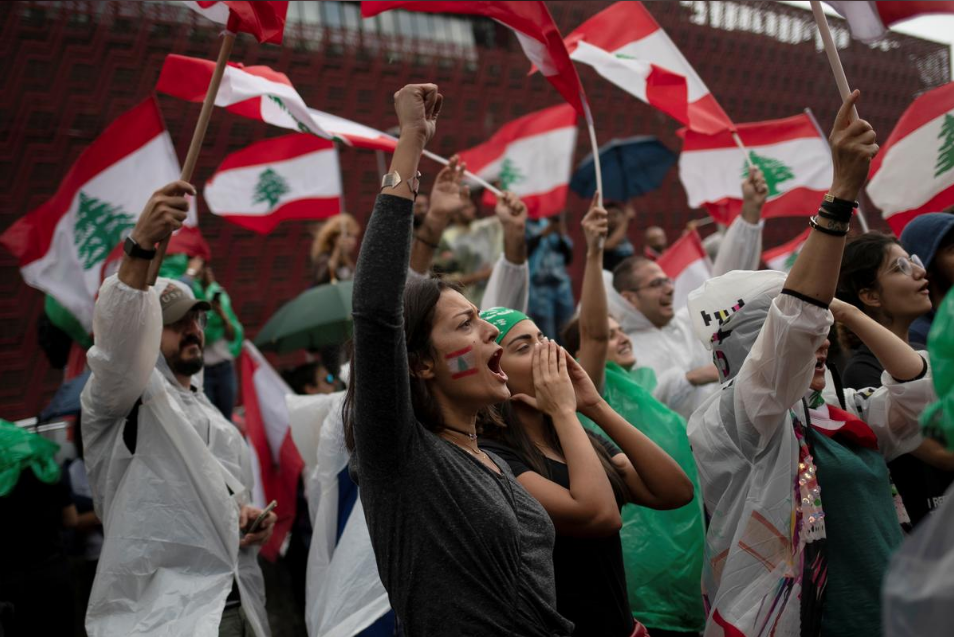Lebanon's prime minister-designate said he would work to form a government within six weeks to help pull the country out of a deepening economic crisis, dismissing accusations he would be dominated by the Hezbollah movement.
Hassan Diab, an academic and former education minister, was designated on Thursday as the next prime minister with the support of the heavily armed Shi'ite Muslim Hezbollah, Lebanon's most influential group, and its allies.
"Previous governments in the last decade took a year to form and I seek to form a government in the next four weeks or a period that does not exceed six weeks," Diab said in an interview with Deutsche Welle.

Demonstrators shout slogans during ongoing anti-government protests at a highway in Jal el-Dib, Lebanon, October 24, 2019. /Reuters Photo
Demonstrators shout slogans during ongoing anti-government protests at a highway in Jal el-Dib, Lebanon, October 24, 2019. /Reuters Photo
On Friday night, troops fired tear gas in Beirut to disperse hundreds of youths who were protesting against Diab's designation, witnesses said.
The protesters threw rocks and fireworks at the soldiers in clashes in the streets of the Corniche al Mazzraa district. Fires broke out in several streets.
Lebanon, in its worst economic crisis since the 1975-90 civil war, has been seeking a new government since Prime Minister Saad al-Hariri resigned on October 29.
Efforts to reach a deal on a new premier have been hurt by rifts that reflect tensions between Hariri, who is aligned with the West and Gulf Arab states, and Hezbollah. Washington sees Hezbollah as a terrorist group and has imposed sanctions on it.
Hariri was quoted in an interview with Lebanon's MTV channel as saying "one has to brace for the worst."
Senior U.S. State Department official David Hale, who arrived on Friday to underline Washington's support for Lebanon's stability, urged the bickering political leaders to implement speedy economic reforms.
Source(s): Reuters